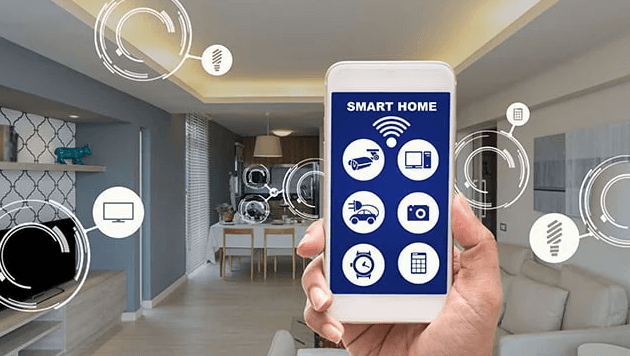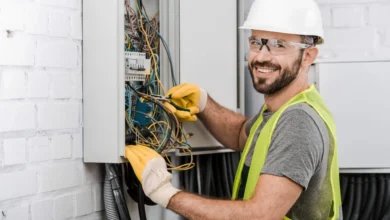Top Home Security Tips for 2024

In 2024, home security is more important than ever. With the increasing sophistication of burglars and the rise of smart home technologies, it’s essential to stay ahead of potential threats. This comprehensive guide offers the top home security tips for 2024, combining the latest trends with timeless practices to keep your home safe and secure.
Understanding the Importance of Home Security
Home security is a fundamental aspect of modern living. It’s not just about protecting your possessions; it’s about ensuring the safety and peace of mind of your loved ones. In 2024, with advancements in technology and the growing threat of cyber and physical intrusions, understanding and implementing effective home security measures has never been more crucial.
The primary goal of home security is to prevent unauthorized access to your property. However, a well-rounded approach also considers the potential risks from natural disasters, personal safety concerns, and privacy issues. By prioritizing home security, you’re investing in a safer environment that allows your family to feel protected, both day and night.
The Evolution of Home Security in 2024
Home security has evolved dramatically over the past few years. Traditional alarm systems are no longer sufficient in an era where criminals have access to sophisticated tools and techniques. In 2024, homeowners must adopt a multi-layered approach that includes physical barriers, advanced surveillance, smart home technology, and proactive measures.
Smart home devices have revolutionized how we think about security. From smart locks and video doorbells to comprehensive home security systems that can be controlled via smartphone apps, the integration of technology has made it easier than ever to monitor and protect your home. Additionally, the use of artificial intelligence (AI) in home security systems is on the rise, offering predictive analytics and real-time threat detection.
Securing Entry Points: Doors and Windows
The most common entry points for burglars are doors and windows, making them critical areas to secure. In 2024, it’s not enough to rely on basic locks and latches; you need to invest in high-quality security solutions that deter intruders.
Reinforced Doors: Start by ensuring that all exterior doors are solid and made of durable materials such as steel or solid wood. Consider installing a steel reinforcement plate around the door frame to prevent kick-ins. For additional security, use deadbolts with at least a one-inch throw.
Smart Locks: Upgrade your traditional locks to smart locks that offer keyless entry, remote access, and integration with other smart home devices. Features such as biometric authentication or keypad entry codes provide added security and convenience.
Secure Windows: Windows are vulnerable entry points, especially on the ground floor. Install window locks and consider using laminated glass or security film to make breaking the glass more difficult. Window sensors connected to your home security system can alert you to any unauthorized attempts to open them.
Enhancing Perimeter Security
Perimeter security is your first line of defense against intruders. By securing the outer boundaries of your property, you can deter potential burglars before they even reach your home.
Fencing and Gates: Install robust fencing around your property to create a physical barrier. Automated gates with access control systems can further enhance security by restricting entry to authorized individuals only.
Outdoor Lighting: Illuminate your property with motion-activated outdoor lighting. Well-lit exteriors make it harder for intruders to approach unnoticed and can be a strong deterrent. Consider solar-powered lights for energy efficiency and strategic placement around entry points, pathways, and dark corners.
Security Cameras: Place security cameras at key locations around your property, such as entrances, driveways, and backyard areas. Modern cameras offer high-definition video, night vision, and remote viewing via mobile apps. Some even come with AI capabilities, enabling them to distinguish between people, animals, and objects, reducing false alarms.
Smart Home Security Systems: The Heart of Modern Protection
In 2024, a smart home security system is essential for comprehensive protection. These systems integrate various devices and sensors to provide real-time monitoring and alerts, keeping you informed of any unusual activity.
Centralized Control: A smart home security system allows you to control all security devices from a single platform, typically accessed via a smartphone app. This centralization simplifies management and enables quick responses to potential threats.
24/7 Monitoring: Many smart security systems offer professional monitoring services that keep an eye on your home 24/7. In case of an emergency, the monitoring center can alert the authorities, ensuring a prompt response even when you’re not at home.
Smart Sensors and Detectors: Equip your home with smart sensors that detect motion, glass breakage, and even changes in air quality. These sensors can trigger alarms and send notifications to your phone, allowing you to take immediate action.
Strengthening Garage and Basement Security
Garages and basements are often overlooked in home security plans, but they can be weak points that intruders exploit. Strengthening these areas is crucial for overall home security.
Garage Doors: Ensure that your garage door is secure by installing a sturdy lock and regularly inspecting the door for any vulnerabilities. Consider upgrading to a smart garage door opener that can be controlled remotely and alerts you if the door is left open.
Basement Windows: Basements are common targets for burglars due to their secluded nature. Install security bars or grilles over basement windows, and ensure they are locked at all times. Window well covers can provide an additional layer of protection.
Cybersecurity for Smart Homes
As homes become smarter, they also become more vulnerable to cyber threats. Protecting your digital home security devices from hackers is just as important as physical security.
Secure Your Wi-Fi Network: Start by securing your home Wi-Fi network with a strong password and encryption. Disable guest networks and change default passwords on all connected devices.
Regular Software Updates: Keep your smart home devices up to date with the latest firmware and software updates. Manufacturers often release updates to patch security vulnerabilities, so it’s essential to install them promptly.
Use Strong Passwords: For all your smart home devices and security systems, use strong, unique passwords. Avoid using easily guessable information such as birthdays or common words. Consider using a password manager to keep track of your credentials.
The Role of Neighbors and Community
A strong sense of community can significantly enhance your home security efforts. When neighbors look out for one another, the entire neighborhood becomes safer.
Neighborhood Watch Programs: Join or start a neighborhood watch program. These programs encourage residents to report suspicious activity and work together to improve local security.
Communication: Stay in regular contact with your neighbors and share information about security concerns or recent incidents. A community that communicates is better prepared to respond to potential threats.
Social Media Groups: Consider joining local social media groups where residents can share updates on security issues. These platforms can be valuable for staying informed about recent crime trends in your area.
Emergency Preparedness and Home Security
In addition to protecting against burglaries, your home security plan should include measures for dealing with emergencies such as fires, floods, and medical emergencies.
Fire Alarms and Smoke Detectors: Install smoke detectors in every room and test them regularly. Consider integrating them with your smart home system for remote alerts. Fire extinguishers should also be accessible in key areas of your home.
Carbon Monoxide Detectors: Carbon monoxide is a silent killer, so it’s crucial to have detectors installed, especially near sleeping areas. Smart detectors can alert you via your smartphone if levels become dangerous.
Emergency Plan: Develop an emergency plan that includes evacuation routes and procedures for contacting emergency services. Ensure that all family members are familiar with the plan and conduct regular drills.
Protecting Valuables: Safes and Secure Storage
Even with the best security measures, it’s wise to have a backup plan for protecting your most valuable items. A safe or secure storage solution can provide an additional layer of protection.
Home Safes: Invest in a high-quality safe that is fireproof, waterproof, and securely anchored to the floor. Use the safe to store important documents, jewelry, and other valuables.
Concealed Storage: For items that don’t need to be accessed frequently, consider using concealed storage options such as hidden compartments or wall safes. These can be an effective way to keep valuables out of sight.
The Human Factor: Training and Awareness
No matter how advanced your home security system is, human vigilance is critical. Training yourself and your family to be aware of potential threats and how to respond to them can make all the difference.
Security Drills: Regularly conduct security drills with your family to ensure everyone knows what to do in case of an emergency. This can include practicing how to quickly lock doors, use panic buttons, and evacuate the home.
Stay Informed: Keep up with the latest home security trends and threats. Understanding the tactics that criminals use can help you better protect your home.
Avoid Complacency: It’s easy to become complacent, especially if you live in a safe neighborhood. However, crime can happen anywhere, so it’s important to remain vigilant and proactive in maintaining your home’s security.
The Future of Home Security: What to Expect
As we look beyond 2024, home security will continue to evolve with advancements in technology. Expect to see more integration between smart home devices and AI, allowing for even more personalized and automated security solutions.
AI-Driven Security: Artificial intelligence will play an increasingly significant role in home security, with systems learning from patterns of behavior to predict and prevent threats before they happen.
Biometric Security: Biometric technology, such as facial recognition and fingerprint scanning, will become more widespread, offering more secure and convenient access control options.
Sustainability in Security: As environmental concerns grow, expect to see more sustainable and energy-efficient security solutions, such as solar-powered cameras and eco-friendly materials for fencing and barriers.
FAQs
How often should I update my home security system?
It’s recommended to review and update your home security system every 2-3 years to ensure you’re using the latest technology and best practices. However, if you notice any vulnerabilities or if there have been recent advancements in security tech, consider upgrading sooner.
Can I install a home security system myself, or should I hire a professional?
While many modern home security systems are designed for DIY installation, hiring a professional can ensure that your system is set up correctly and optimized for your specific needs. Professionals can also provide valuable advice on placement and integration with other security measures.
What are the most effective deterrents against burglars?
Visible security measures such as security cameras, outdoor lighting, and signs indicating a monitored alarm system are among the most effective deterrents. Burglars are less likely to target homes that appear well-protected.
How can I secure my home while on vacation?
Before leaving for vacation, ensure all entry points are locked and your security system is armed. Consider using smart lights to simulate occupancy and ask a trusted neighbor to collect your mail and keep an eye on your property.
Are smart home devices secure from hackers?
Smart home devices can be vulnerable to hacking if not properly secured. To protect them, use strong passwords, enable two-factor authentication, keep your devices updated with the latest software, and secure your Wi-Fi network.
What should I do if I suspect someone is trying to break into my home?
If you suspect a break-in, immediately call the police and avoid confronting the intruder. If safe to do so, gather your family and secure yourselves in a safe room while waiting for the authorities to arrive.
Conclusion
Home security in 2024 is about more than just locks and alarms; it’s about creating a comprehensive strategy that integrates physical security, smart technology, community cooperation, and personal vigilance. By following these top home security tips, you can significantly reduce the risk of burglary and ensure that your home remains a safe haven for you and your loved ones. Stay informed, stay vigilant, and invest in the best security solutions to keep your home protected in the years to come.





